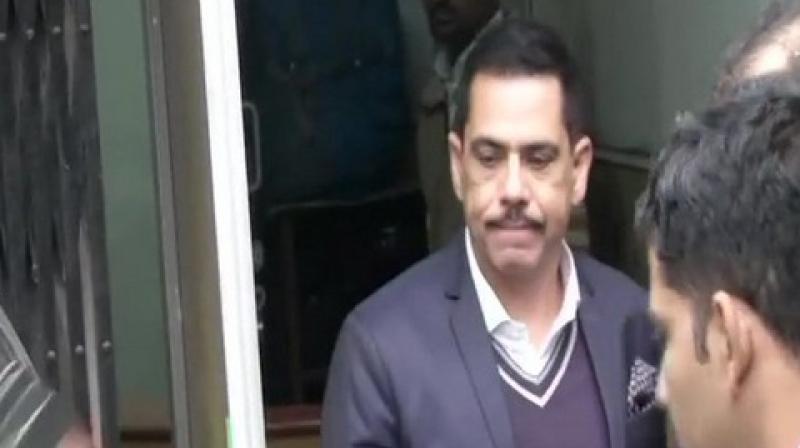HC grants time to ED to file response on maintainability of Robert Vadra\'s plea
Petition added that despite investigation in land deals in Rajasthan and Haryana by various probe agencies, nothing was found against Vadra.

New Delhi: The Delhi High Court Thursday granted more time to the Enforcement Directorate (ED) to file an affidavit regarding the maintainability of Robert Vadra's plea seeking quashing of a money laundering case in which he was questioned by the probe agency.
A bench of Justices Hima Kohli and Vinod Goel directed the ED to file the response within a week and listed the matter for further hearing on July 18. The court asked Vadra and his close aide Manoj Arora to file their rejoinder to the ED's affidavit in two weeks thereafter.
Central government standing counsel Amit Mahajan, appearing for the ED, said the short affidavit was almost ready and they require some more time to file it.
The court had earlier on March 25 asked the probe agency to file its response in the form of an affidavit regarding the maintainability of two separate but similar petitions by Vadra and Arora within two weeks.
The ED had opposed Vadra's plea, saying it was not maintainable as he "wilfully suppressed" material facts from the court. It had contended that the plea of Vadra, brother-in-law of Congress president Rahul Gandhi, was an abuse of process of law.
When he feared that "law will catch him, he challenged the PMLA provisions", it had added. The ED case relates to allegations of money laundering in the purchase of a London-based property at 12, Bryanston Square, worth 1.9 million pounds.
The property is allegedly owned by Vadra. Vadra has also sought that various provisions of the Prevention of Money Laundering Act (PMLA), 2002, be declared unconstitutional.
Vadra has sought in his plea that Sections 3 (offence of money laundering), 17 (search and seizure), 19 (power to arrest), 24 (burden of proof), 44 (offences triable by special courts) and 50 (powers of authorities regarding summons, production of documents and to give evidence, etc) of the PMLA be declared ultra vires or unconstitutional.
He has contended that since these provisions constitute the main parts of the Act, the entire legislation was liable to be struck down on the grounds of being unconstitutional.
Solicitor General Tushar Mehta, representing the ED, had earlier argued that in the petition Vadra has not made any reference to the investigation going on here which is under the jurisdiction of the Delhi High Court and he has mainly referred to the probe in Rajasthan land case which is not the subject matter of this FIR.
"The petitioners are fully aware as to for what they were being investigated here but they suppressed the facts in the petition," he had said.
Vadra had said in his petition that while it is permissible for the investigating agencies to conduct further probe, the sweeping investigation power does not warrant subjecting a citizen each time to a fresh investigation in respect of the same incident giving rise to one or more cognisable offences.
The plea had said that multiple investigations have been held in "abuse of statutory power of investigation and therefore second or successive FIRs filed in connection with the same or connected cognisable offence alleged to have been committed in the course of the same transaction pursuant to the first FIR is liable to be quashed".
The petition added that despite the investigation in the land deals in Rajasthan and Haryana by various probe agencies, nothing was found against Vadra and his firms.
"However, in order to harass and humiliate the petitioner, another ECIR (enforcement case information report) was registered into the same deals. It was in this wake of the matter that Rajasthan High Court directed that no coercive steps will be taken against the petitioner (Vadra)," the petition had said.
It had said, "another ECIR was registered with regard to the same assets in India and abroad which were subject matter of the FIRs and earlier ECIR registered by the Respondent (ED) at Jaipur. The investigation into the subject ECIR also was to be done on the basis of same documents which had already been supplied."

